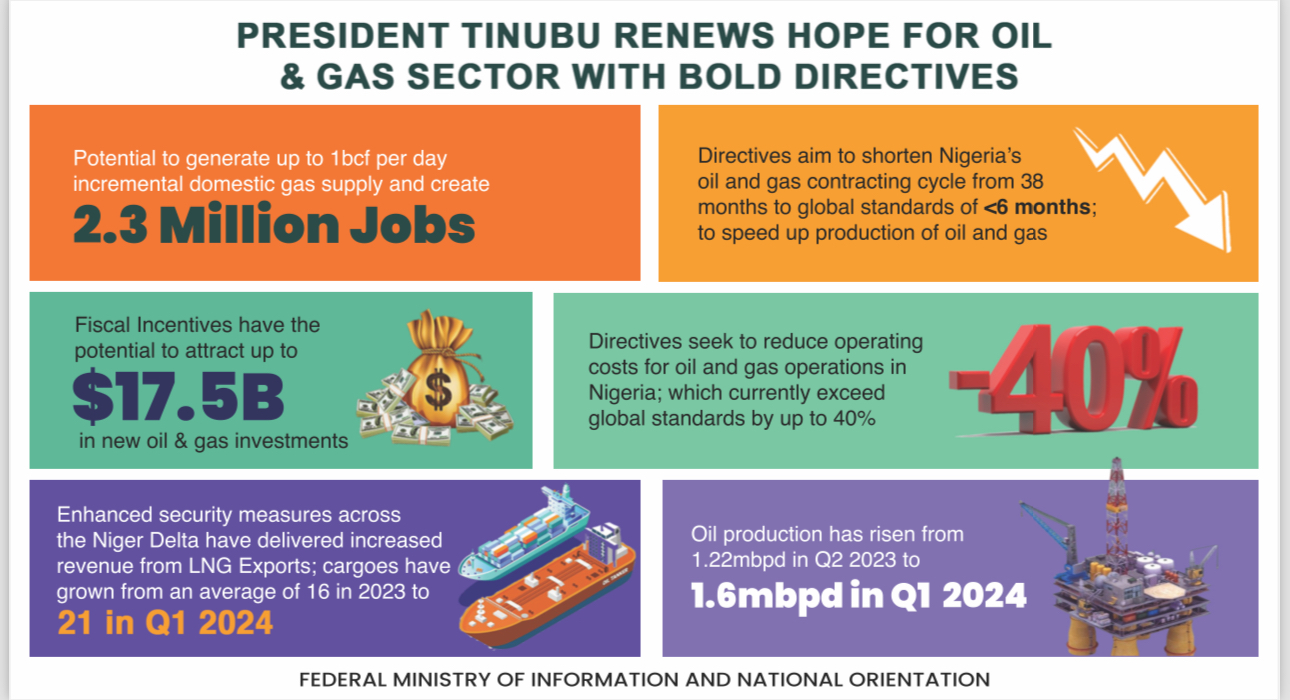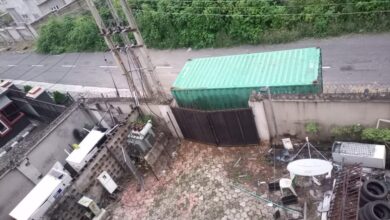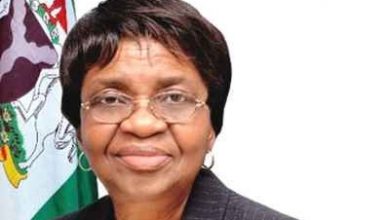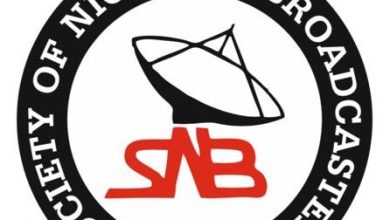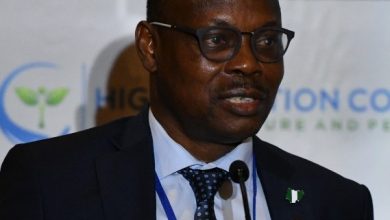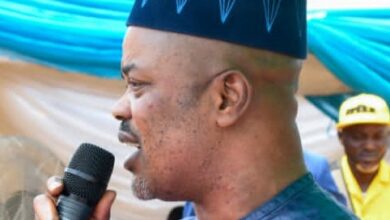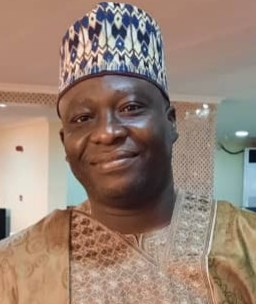
For the record: The role of private broadcasting in national development being lecture delivered by Aduku Armstrong Idachaba, Director General National Broadcasting Commission at the 5th anniversary of Sweet F.M Station in Abeokuta
It is indeed an honour and previledge for me to speak on this occasion of the 5th anniversary of sweet FM. Permit me to congratulate Sweet FM for this landmark attainment knowing how challenging private businesses can be. Let me also thank my Boss the irrepressible, media intellectual ,comrade Eddie Aina.
DEFINITION OF TERMS
A cursory look at the title of my paper clearly indicates 2 key phrases- Private Broadcasting, National Development .
Broadcasting as you know is the distribution of audio or video content to a dispersed audience via any electronic as communications medium, but typically one using the electromagnetic spectrum(radio waves) in one to many.
According to Wikipedia(2021)Commercial Broadcasting(also private broadcasting) is the broadcasting of television programs and radio programme by privately owned corporate media as opposed to state sponsored. It was the United States first model of radio during the 20s,in contrast with public television model in Europe during the 1930s,1940s and 1950s which prevailed world -wideintroduced the concept of paid services such as cable television and satellite television apart from the radio and television services. As opposed to public broadcasting which receives government subsidies, private broadcasters earn revenue primarily based on airing advertisements and through subscription for cable and satellite services. It notes that private broadcasting is subject to the control of the broadcasting body, which issues broadcasting licensees.

The term National Development is broad and comprehensive and encompasses all aspects of the wellbeing of an individual and the nation. It is holistic in approach and a process of reconstruction and development of a nation and its individual in various dimensions such as economic development, social development, industrial development, infrastractural development, job creation, human capital development, modernization etc.
The United Nations Decade report simply defined National Development as growth plus change, in this regards, this paper seeks to interrogate how private broadcasting have affected growth and change to the country’s development.
The term National Development is broad and comprehensive and encompasses all aspects of the wellbeing of an individual and the nation. It is holistic in approach and a process of reconstruction and development of a nation and its individual in various dimensions such as economic development, social development, industrial development, infrastructural development, job creation, human capital development, modernization etc.
The United Nations Decade report simply defined National Development as growth plus change, in this regards, this paper seeks to interrogate how private broadcasting has affected growth and change to the country’s development.
I begin the paper by speaking even for the purpose of records from the history of Broadcasting in Nigeria. Guess we all know the classical chronology of Nigerian broadcasting that -Broadcasting in Nigeria has evolved from the British colonial re-diffusion centre of 1937 through federal and state government-controlled enterprise to a dynamic industry with strong private participation which permeate homes not only through tube and boxes but portable devices enabled by the coming of mobile phones and the internet.
The British re-diffusion centre introduced in 1937 marked the birth of broadcasting in Nigeria. The establishment of the Nigerian Broadcasting service in 1951 and the Nigerian Broadcasting Corporation in 1957 entrenched broadcasting in Nigeria, albeit as a federal government monopoly. A monopoly which was broken in 1959 with the establishment of Western Nigeria Broadcasting service and the eventual emergence of private broadcasting in 1992 with the deregulation of the industry. For several decades after independence, broadcasting remained in the hands of government without the involvement of private individuals until 1992 when the Ibrahim Babangida Administration embraced the much clamoured deregulation and privatization of the electronic media. Which led to the creation of the National Broadcasting Commission giving it the power to license and regulate the industry.
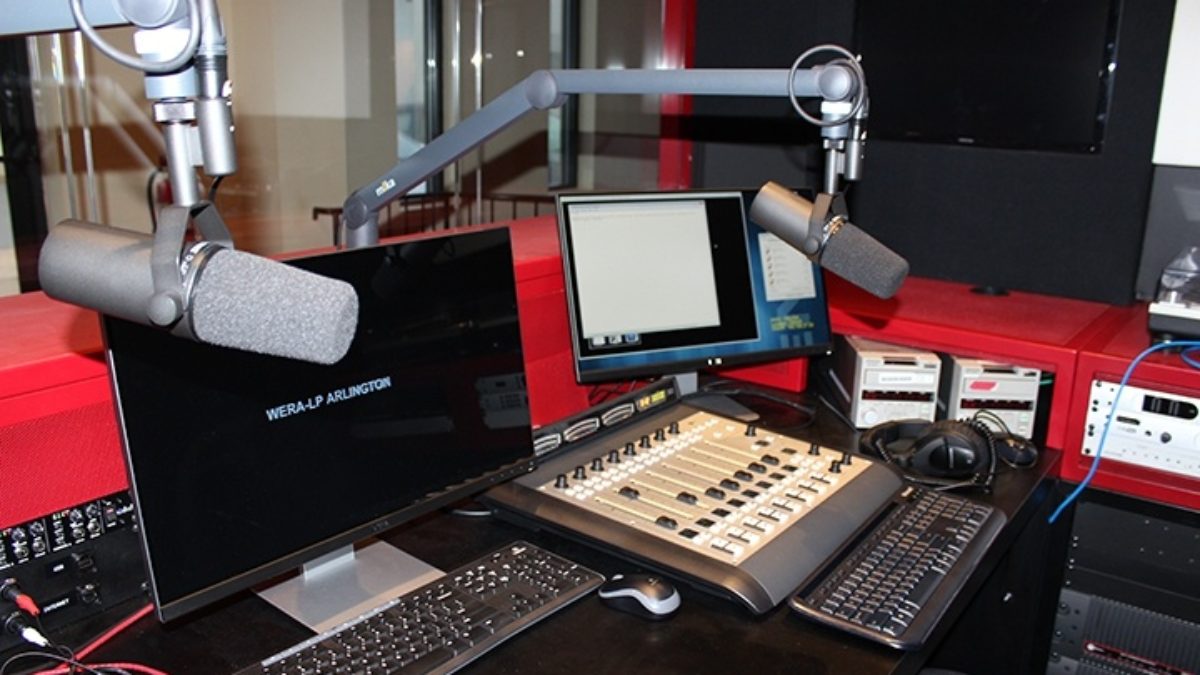
According to Momoh(1989) Perhaps the first effort to fashion a communication policy for Nigeria began in 1987. As part of the implementation efforts of the policy, government decided to set up a regulatory body ”to ensure among others full compliance with the provisions of the policy which relates to the subject area. Momoh 1989- notes that the policy should also make provisions for the establishment of a national body .The body should be given the power to lay down rules, set up standards,enforce broadcasting Codes, and make recommendations to the President relating to the issuance and withdrawal of broadcasting licenses to private broadcasting organizations.
The visions of the Mass Communication policy came to birth with the establishment of the NBC. The history of private broadcasting began in Nigeria therefore began with the ‘promulgation’ of the NBC Act in 1992. That marked the beginning of the de regulation of broadcasting in Nigeria. It is the NBC that has witnessed the huge dreams of private broadcast which was a major stream of the visions of the Mass Communication Policy. Chief Raymond Dokpesi(1996) in his article –The Economics of the Deregulation and commercialization of Broadcasting, recounts that which stated that –
Pre-dating the NBC was indeed the National Mass Communication
Policy of 1990. It gave official bite to the national mood for deregulation
Decree No. 38 of 1992 which established NBC and was therefore, an instrument of implementation of the National Mass Communication
Policy, which stressed the obvious need for a regulatory Agency to monitor, coordinate and regulate the entire broadcasting industry in Nigeria while mid-wifing the democratization and deregulation of Nigeria Broadcasting. The NBC, it must be emphasized was not set up solely to license and regulate private broadcasting stations, neither is it a government gag-machinery.
Indeed it was an actualization of popular recognition of broadcasting as a vital tool in the country’s socio-economic development and the need to break a monolithic broadcast culture that had proved counter- productive to the objective of our quest for rapid political, economic, social and cultural development. To achieve this objective therefore, the NBC could not have been set up to monitor and control private broadcasting stations alone. Indeed, the law provides that the NBC monitors and regulates the entire broadcast industry having been vested with the relevant powers relating to broadcasting under the Wireless Telegraph Act and Regulations as well as powers in section. 7(1) of the NTA act and section 6(1) of the FRCN Act, section 2(2) of the National Broadcasting Commission Decree 1992 states unequivocally that:
“No person shall operate or use any apparatus or Premises for the transmission of sound or vision by Cable, television, radio, satellite or any other medium of broadcast from anywhere in Nigeria except under and in accordance with the provisions of this Decree”
‘’Issuance, renewal and revocation of broadcast licenses.
Setting standards through the National Broadcasting
Code on acceptable content and quality of PROGRAMME
And non-PROGRAMME materials broadcast on radio,Television and satellite/cable stations in Nigeria.
Receiving, considering and investigating complaints,observations and suggestions from individuals, organizations, communities and governments regarding the performance of broadcasting stations for the purpose of maintaining standards.
Broadcasting stations are encouraged to lay similar complaints, make observations and suggestions concerning individuals, organizations, communities and governments whose conduct impinges significantly on their performance.
Enforcing standards and regulations through an array of sanctions including fines, reduction of broadcast hours, shutdowns, forfeiture and seizure of equipment. Approving transmitter power, location of stations, areas of coverage, and types of broadcasting equipment to be used. Undertaking research and development in the broadcast industry. Upholding the principles of equity and fairness in the broadcasting.
Promoting Nigerian indigenous cultures, moral and community life through broadcast. Monitoring broadcasting for harmful emission, interference and illegal broadcasting”.
Head of state General SaniAbacha(1996) in his opening address at AFRICAST 1996, April, recounting the emergence of the NBC noted that –
Having keenly watched the operations of the National Broadcasting Commission since its birth, I am convinced now more than ever that the decision to deregulate the airwaves was well conceived. It has fostered a healthy competition and given the viewers and the listeners a variety in choice.
While there is always room for improvement, the Commission has started well and should be encouraged in its drive to sanitize the broadcasting industry and lay a firm foundation for the democratization of the electronic media which is an essential element of this administration’s firm commitment to a sustained democracy in this country.
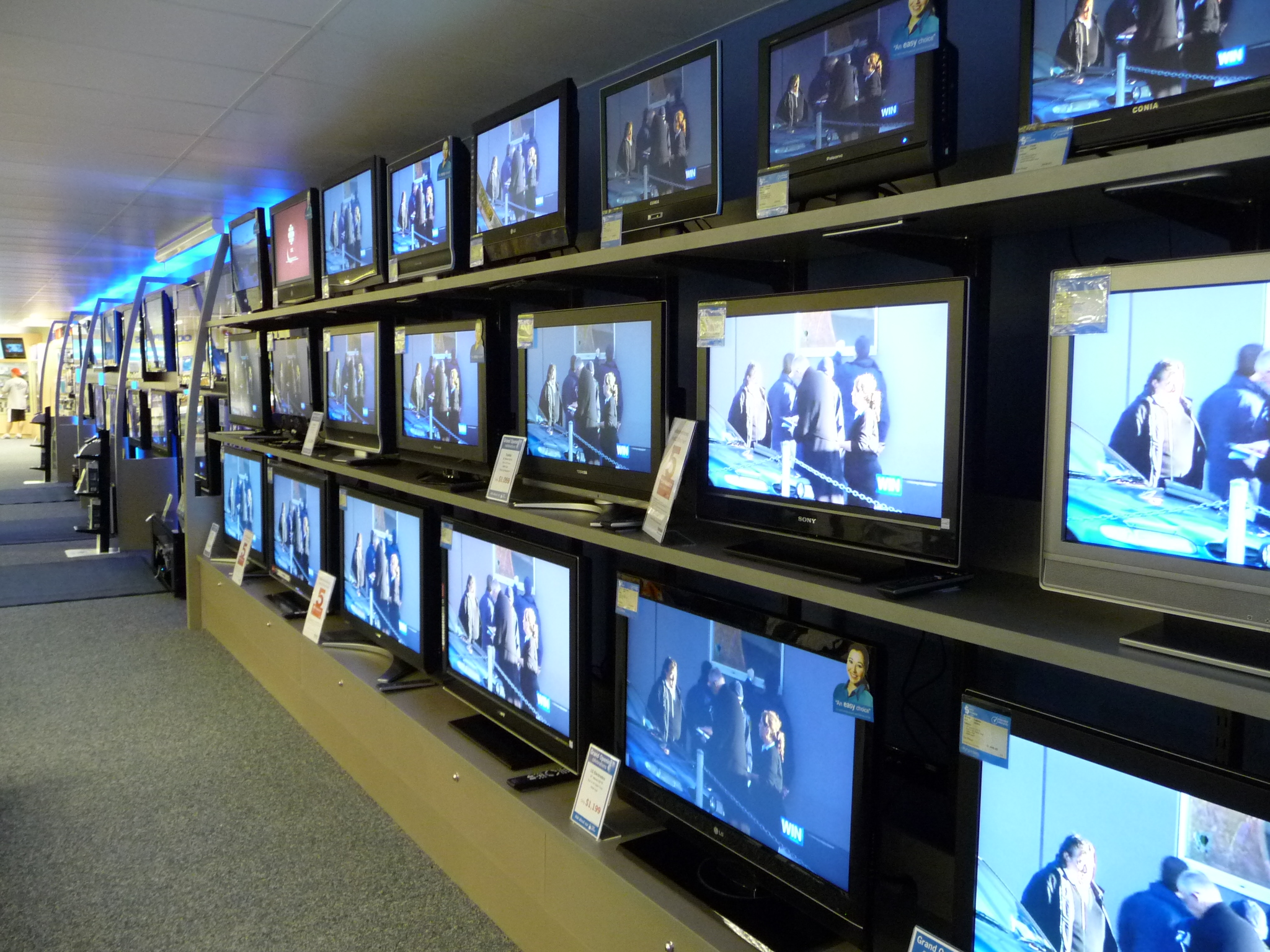
The objectives of broadcasting for Nigeria were clearly enunciated even by a maximum military ruler like General Abacha.
Abacha noted that –
The premium that this administration places on broadcasting as medium for national self-actualization prompts me to reiterate the following:
*The broadcast media in Africa should be seen as the guardian angel of African values, morals, education and civilization.
*Programmes should be for the education of our vulnerable youths on the arts, culture, industry and moral values of the Africa.
*Broadcasting should extol our race and not denigrate if. It should celebrate our festivals and cultures and not scoff at them. It should promote positive practices while condemning anti-social and dehumanizing traditions.
As at 1996 Dopkesi states that -Since the NBC came on stream, it has, in furtherance of its functions, secured Presidential approval for the first set of private broadcasting organizations in Nigeria with fifteen open broadcast Television and 13 Cable Satellite re-transmission operators. Among them, Clapperboard Television Channel 45 Lagos, Minaj System TV, Channel 38 Obosi, Desmims TV Channel 38 Kaduna, Galaxy Pictures TV Channel 53 Ibadan, Degue Broadcasting Network, channel 32 and CHANNELS also in Lagos. African Independent Television (AIT) – Africa’s first Direct Broadcast by Satellite (DBS) system with global coverage is set to begin transmission anytime from now. On the 16th of August 1994, the National Broadcasting Commission secure Presidential approval for the licensing of DAAR Communications Limited, Lagos to operate the nation’s first private radio station, Ray Power 100.5 FM which commenced a 24 hour broadcast on 1st September, 1994, Minaj System in Obosi was recently granted a radio license.
Since the private stations commenced operations, emphasis has been on professionalism, creativity, fairness and an abiding commitment to accurate and factual information, education and lively entertainment. Perhaps the greatest vindication for the proponents of deregulation is the success so far recorded by the private stations in adhering to the provisions of the National Broadcasting Code introduced on 8th December, 1993 as they relate to professionalism, national cohesion, national security, respect for human dignity, family values, religious and communal sensibilities as well as abstinence from inciting broadcasts.
THE BROADCAST INDUSTRY TODAY
MEDIA INDUSTRY OVERVIEW
Nigeria’s media is one of the most vibrant in Africa. State radio and TV have near-national coverage and operate at federal and regional levels. All 36 states run at least one radio networks and a TV station. There are hundreds of radio stations and terrestrial TV networks, as well as cable and direct-to-home satellite offerings.

OVERVIEW OF AVAILABLE MEDIUMS IN NIGERIA
The table bellows provides an overview of the available mediums in Nigeria. As it can be seen there are more than 120 TV stations, 135 licensed radio stations, over 130 daily/weekly newspapers over 70 weekly/monthly magazines and 124 registered out doors firms:
| TELEVISION | OVER 200 + OPERATIONAL TERRESTRIAL TV STATIONS | |
| 1 Federal Radio network service | ||
| Nigerian Television Authority (NTA) with a total of 101 stations (81 presently on air including 36 local(community) stations) | ||
| 2 Privately-owned network services | ||
| Africa Independent Television (AIT) with 9 stations
Silverbird Television (STV) with 6 stations Channels TV /Radio Network yet to be on Air |
||
| 37 State-owned stations | ||
| 0ver 400 Private Stations | ||
| Over 137 Satellite TV Stations | ||
| More than 200 Private Stations | ||
| 7 Key DTH Operators | ||
| DSTV with 127 + channels
StarTimes with 70+ channels GOTV with 41+ channels |
||
| Audience Measurement | ||
| Monthly Media Diaries (TV Audience Measurement Survey-TAMs) | ||
| RADIO | OVER 135 LICENSED RADIO STATIONS | |
| 1 Federal network | ||
| Federal Radio Corporation of Nigeria (FRCN) with 40 individual stations | ||
| Over 63 State-owned stations (on AM & FM bands) | ||
| Over 60 Privately-owned stations | ||
| 27 Campus Radio | ||
| 9 Community stations | ||
| Audience Measurement | ||
| Monthly Media Diaries (Radio Audience Measurement Survey – Rams) | ||
| Diaries (Radio Audience Measurement Survey – RAMS) | ||

Total radio 444-private 239, GOVT STATE AND FED(80)-FRCN 44, states 36,DAAR 16, SB 8
TV 249-PRIVATE 25 FED 1,STATE 70.CAMPUS 50,COMMUNITY-5
TOTAL
As Nigeria is a large country, not each media has equal impact in each region. According to Media Facts( )
Statistically, Radio has highest penetration 985%) followed by TV (80%);
*TV has best penetration in Lagos (87%);
*Radio has best penetration in South East & West (92%);
*Newspaper has best penetration in South West (37%)
*Magazine has best penetration in Lagos (67%);
*Outdoor has best penetration in Lagos (92%);
*Internet has best penetration in North Central (41%)
AUDIENCE
The Nigerian market place offers similarly compelling growth prospects. For players interested in entertainment and media on and from the African continent, Nigeria is key to conquering Africa as it has Africa’s largest population and strongly youth-skewed Demo-graphics. Nigeria has a population of approximately 181,562,056 million (2015) with more than 63% of the population is from 0 to 24 years;
As we can see from the picture bellow TV penetration is the highest at Lagos, with the Southern parts of the country also over the 80%. The Northern parts are slightly falling behind with the North West with the lowest TV penetration with 72%.
ADVERTISING
Although Nigeria is ranked highly on the list of top internet users in the world, the country has one of the lowest figures for internet advertising revenue per capita globally. However, the market is growing rapidly. Nigeria’s internet advertising market will almost quadruple, from US$36 million in 2014 to US$141 million in 2019. Internet advertising can be divided into 5 categories: Search, Display, Classified, Video and Mobile advertising. Paid search internet advertising revenue has traditionally been the main internet advertising sub-component in Nigeria. Paid search and display will continue to grow steadily over the forecast period, but mobile internet advertising will be the main growth driver and is set to over take paid search in 2015, and to account for more than 60% of total Internet advertising revenue in Nigeria by 2019.
Potential problem of the future growth of Internet advertising is the political instability affecting northern regions of the country and no required infrastructure which will slow the internet penetration in that parts of the country.
CURRENT STATS IN ADVERTISING REVENUES
GSM service providers with 22 percent leads the spend by product category, with personal paid, banking and finance and corporate following very distantly in that order. The top 20 by category in terms of advertising expenditure accounts for about 71 percent.
Lagos remains the commercial hub for most advertisers, hence taking the largest share of radio investment relevant to other regions.
Telecoms with 17 percent of the total investment on radio medium remain the lead category in 2019
20 top advertisers account for 52 percent of the total investment on radio, Nestle is the lead advertiser on radio with 7 percent share
Nestle
Airtel, mtn, globacom,9 mobile, multichoice, Cadbury, pepsico,friesland,coca cola, sundry advertisers, Nigeria breweries, de united, chi Nigeria, pzwilmar, promasodor, orange drugs, Guiness Nigeria, Jumia.com, Samsung etc

SUMMARY OF FINDINGS FROM THE TWO STUDIES
The 2017 Audience Measurement survey revealed the following among others:
Stations and Programmes Ratings:
*The 2017 survey found out that, in most of the locations sampled, households watched NTA stations more than other Television stations which might be attributable to the station’s exceptional network spread to almost all parts of the country and its inclusive programming policy.
*On the Radio station’s of preference, it was observed that households mostly preferred to listen to local stations unique to their locality. Also, most of the radio stations listened to are privately owned and this was attributed to the quality of programmes broadcast on the stations.
*In relation to stations received, apart from Obokun where OSBC TV is the most received television, findings from other sampled locations showed NTA as the mostreceived due to its network spread across virtually all parts of the Country..
*Interms of choice of programming type, the general programming was overwhelmingly preferred over the thematic across all the age classification from 12 years to above 50 years according to the 2017 survey report.
*Regarding the hours devoted to watching TV, most respondents watch TV between 1-3 hours daily. 52% of Respondents watch TV between 4 hours and above during weekends.Thus people spend less time watching TV during weekdays and more time watching TV during weekends. The 2019 study affirmed the 1-3 hours average daily hours devoted by respondents to watching TV and listening to Radio.
*It was found that News, Movies and sports are the most preferred programmes in all the sampled towns. News is important for daily account of events in the society. The 2019 survey also corroborated this finding.
*Radio is the main source of information for the households, followed by TV and social media. Most people listen to the radio in the Northern part of Nigeria than in the south.
*Rural Dwellers preferred radio as their main source of information while their urban counterparts preferred television.
*Concerning households with TV sets majority of the respondents, 89.4% have TV set while 10% do not have.

Audience Demographic Profiles:
*Gender of Respondent- The males dominated with 62%. This is because they are more accessible than their female counterparts especially in the north due to cultural and religious factors.
Male Respondents exhibit stronger preference for News, Sports and movies while their female counterparts tend to prefer News, movies and drama.
*Age of Respondents- Age group 18-38 years accounted for 62.9% of the respondents. This age group constituted the highest percentage of Nigeria’s population. They are agile, mobile and accessible.
*Level of Respondents Education: People with tertiary education led the packs of Respondents with 41%, followed by those with secondary school education with 35%.
*Types of Employment- About half of the Respondents 43.6% are self-employed, 22% are government employed and 12.7% are privately employed. However, 21.4%are unemployed.
The Findings from the 2019 Audience Measurement survey :
*The findings among others include the following:
*It was found out that of the four daily broadcast belts investigated, the morning belt (12.00 midnight – 11.59 am) was the most important in terms of time for media consumption to the Respondents, followed by the family belt(4.00 pm – 9.59 pm).
*Among the network TV Stations, NTA, Channels and AIT are rated first, second and third in reach and penetration.
OBJECTIVES OF BROADCASTING TODAY
The Broadcasting Code 6th edition dissects the objectives of broadcasting as—
Broadcasting is a creative medium, characterized by professionalism, choice and innovation, to serve the interest of the general public. Its utilisation of audio and video technology makes it capable of reaching the audience simultaneously, availing mankind with the best means of information dissemination and reception.
It also enables the individual to share in and contribute, to the best of his ability, to the world around him. Broadcasting shall influence society positively, setting the agenda for the social, cultural, economic, political and technological development of a nation, for the public good. By means of broadcasting, every Nigerian is expected to partake in the sharing of ideas and experiences that will enrich his or her life and help him or her live in a complex, dynamic and humane society, as set out in Chapter two of the 1999 Constitution of the Federal Republic of Nigeria {as amended} {hereinafter referred to as the Constitution}.
Nigerian broadcasting shall essentially match the best in the profession anywhere in the world, yet be distinctly Nigerian, projecting the best and discouraging the worst in the society. In other words, the cardinal responsibility of broadcasting to inform, educate and entertain shall not be at the expense of national interest, unity and cohesion of Nigeria’s diverse social, cultural, economic, political and religious configurations. Therefore, no broadcast shall intentionally encourage or incite to crime, lead to public disorder, be repugnant to public feeling or contain an offensive reference to any person, alive or dead, or generally, be disrespectful to human dignity
8 0.2.2 Objectives of Broadcasting a. Broadcasting shall be guided by the following broad objectives, which are in line with the Fundamental Objectives and Directive Principles of State Policy, as set out in chapter two of the 1999 Constitution {as amended}. b. Broadcasting shall provide an efficient, professional and comprehensive service to the entire people of the Federal Republic of Nigeria based on national objectives and aspirations.
0.2.2.1 Social Objectives a. To provide a functional level of enlightenment for the Nigerian populace, irrespective of their educational background. Specifically, broadcasting is to: i. promote generally accepted social values and norms, especially civic and social responsibilities; ii. promote the acquisition or pursuit of knowledge; iii. disseminate impartially, news and opinions in a manner encouraging meaningful and articulate dialogue and discussion of issues of public interest; iv. promote the physical, mental and social well-being of the people; v. foster the spirit of self-discipline, self-sacrifice and self-reliance; and vi. encourage respect for the dignity of man. b. Broadcasting organizations shall recognize that they exercise freedom of expression as agents of society, not for any personal or sectional rights, priviledges and needs of their own or of their proprietors, relatives, friends or supporters. c. Broadcasting shall promote values and norms, which foster the wellbeing and co-operation of the various segments of the Nigerian society.
9 0.2.2.2 Cultural Objectives To encompass various aspects of community life including aesthetics, religion, ethics, philosophy, language, history and the arts. Therefore, broadcasting shall: a. provide, through programming, a service essential to the maintenance and enhancement of national identity and cultural sovereignty; b. serve to safeguard, enrich and strengthen the cultural, political, social and economic fabrics of Nigeria; c. seek, identify, preserve and promote Nigeria’s diverse cultures; d. select critically, the positive aspects of foreign cultures for the purpose of enriching the Nigerian culture; e. develop and promote the application of indigenous aesthetic values; f. promote the development of a high level of intellectual and artistic creativity; and g. foster generally acceptable moral, ennobling and spiritual values.
0.2.2.3 Economic Objectives a. To be consistent with the nation’s economic goals, which include the building of: i. a united, strong and self-reliant nation; ii. a just and egalitarian society; iii. a great and dynamic economy; and iv. a land bright and full of opportunities for all citizens. b. Broadcasting shall, therefore: i. monitor trends and developments in production processes; ii. promote knowledge of available products and services through programmes and advertisements; iii. foster the spirit of hard-work and productivity to improve the quality of life of the people; and 10 iv. encourage the production and consumption of local products to achieve self-sufficiency and self-reliance.
0.2.2.4 Political Objectives To contribute to the development of national unity and participatory democracy. Therefore, the political objectives of broadcasting shall: a. create and promote political awareness amongst the people in order to achieve a democratic society; b. inculcate in the people the spirit of tolerance of all shades of opinion; and c. promote social justice based on the responsibilities and rights of the individuals in society.
0.2.2.5 Technological Objectives To exploit the nation’s abundant natural and human resources to the advantage of the people. Therefore broadcasting shall : a. keep the people abreast of technological developments; b. promote and encourage the study of science and technology; c. promote the spirit of self-reliance and engender the development of indigenous technology; and d. promote a scientific and rational attitude to life by encouraging research.
0.2.2.6 Professional Objectives To demand the high level of specialization and professionalism. Therefore broadcasting is to ensure: a. development of professionalism through recruitment and training of personnel, who at the point of entry into senior cadre shall, possess at least, Higher National Diploma (HND) or its equivalent in broadcast related fields; b. that only professionals with at least 10 years cognate experience shall head core departments, divisions or 11 directorates; c. that only professionals with at least 15 years cognate experience in broadcasting, shall be made Chief Operating Officer of a broadcast station; d. that Nigerian talents and facilities shall be used as much as possible in the production of programmes, including advertisements; e. meaningful investment in research and development, and job security with appropriate remuneration is guaranteed; therefore, the Commission shall arbitrate in instances where unjust removal of a broadcaster is established.
Impact on National Development
Industry Growth and Competition:
The coming of private broadcasting have brought multiplicity of choices in the sector, introduced competition and widened the growth of the industry. This is first seen in the NBC Licensing regime.
The category of broadcast licence given by the NBC has widened from the mere radio and television license of 1992 to over 13 categories of broadcast license as at 2020 namely Satellite Broadcast Subscription DTH (Audio and Video), Cable Television Subscription, Community (Radio and Television), Networking (Radio and Television),FM Radio Broadcasting, Internet Broadcasting, Digital Multimedia content Aggregation ( Video, Audio or interactive media Services), Broadcast signal Distribution, Digital Terrestrial ( free-Tv-Air) TV, Direct Channel or content broadcast( satellite, Digital Terrestrial Television or Over the Top), Mobile/Handheld(DVB-H), Digital Terrestrial Television.
This has also engendered competition in the sector which also impacts on improvement in technology. In the Cable broadcast sector for example the example of ABG Communications makes an interesting comparison on the impact of competition in improving the subscriber choice and access to new technology, The Chairman of ABG in an interview with the NBC News publication in 2002 said of his company’s experience as a monopoly; “when I started …people were queueing for our system in Lagos…and it paid me as at that time. People were amazed by the system and so they wanted to be part of it…the difficulties I encountered were in coping with the increasing number of subscribers”
Ten years after operation the Chairman of ABG comment on the cable retransmission business reveal that they have been forced to improve on decoders from analogue to digital enabled
: “there used to be money in it but today there are so many operators in the field… we thank God that our previous investment was fully recovered. But our new investment of changing our decoders to digital- they are no more analogue- cost millions of Naira and we are yet to recover our investment… recovery period will not be as fast as before when we had a monopoly”.., in each city there are about seven operators and minimum of about three. It is different when you are the only one, subscribers now have a lot of choice, in terms of programmes and price…”
ECONOMIC IMPACT
Statistics on statista.com have it that the motion and music industry have contributed some 1.2 trillion naira to Nigerian GDP in 2016. However broadcasting alone made up some 1.7 trillion naira making it the most valuable sector in the creative industry
In a report for Multichoice by Accenture estimates that about $428 million has gone into local content production business of Multichoice mostly in developing local creativity and building the production infrastructure to support it has also invested
In its 27 years of existence in Nigeria, Multichoice Nigeria’s contributions to socio economic development. In a socio- economic impact assessment conducted on its behalf by a consulting firm, Accenture, the company is believed to haves contributed an estimated $2.1 billion between 2015 and 2019 to the Nigerian economy. This includes entrepreneurship and investment opportunities through channels on its platform, investment in growth of the sports, technology, film and video sectors through infrasctructural development
The large numbers of private radio and television stations have invested much to the economy
Consumer Access
Competition also lowers the entry level for access to content. The industry begins to think of how to win the public. In response to what special offering he has to beat the competition from Multichoice, The ABG Chairman said; “we are working on a certain installmental payment the money will be recovered within a certain period. I think subscribers will welcome the idea”.
ABG cost of subscription as at the 2002 was N15, 000, equipment for new subscribers cost N48, 720. Interesting with growth in the sector, lower cost decoders have been introduced and often subsidized by the Pay TV operator. As at 2020 a subscriber can be connected with less than N10, 000 for DTH and DTT networks.

Increase in the Public sphere
Private broadcasting has no doubt widened the public space of ideas and opinion. An analysis of the role of the electronic media in the transition process was that of messenger in a time of establishing the throne. He opines that the bulk of radio and television channels owned by government conveyed dutifully the messages of the government to the public in the form of addresses, special interviews, documentaries, news casts and public service announcements and jingles.
Local Content Development
Key among the regulatory activities of the NBC for the broadcast sector was to set a local content quota of a minimum 60% for all licensee. This has served to impact on content development and human capital development
Much of the growth seen in the Nigerian music industry and Nollywood was orchestrated by the emergence of private broadcasting in Nigeria
Similarly Family belt rule which requires that only local content can be aired between the hours of 7pm to 10pm also spiked the introduction of Local soaps to television screen.
Human Capital development
Have also seen a boost with the growth of private broadcasting. The deregulation also saw a lot of mobility with staff of existing government owned stations moving to the newly established private stations. The new industry also provided opportunities for new entrants who had to be trained in the course of their engagement. Interestingly too the new stations were partnering with international media for training of their staff.Degue Broadcasting Network,DBN became the first private television in Nigeria with a provisional license on UHF 32 issued in 1992, although now defunct. Osu Sunny Adum the Chief Executive Officer Chairman of Degue Broadcasting Networks owners of the now defunct DBN Tv said the company was one of the first to send their staff to South Africa, Singapore and the United states for training.
The privatization of broadcasting has led to a major boost in employment creation in the industry especially for young creative, talented and skilled enterpreneurs and technicians. With the Digital transition going full stream , it is expected that over 300,00 jobs will be created-With a total of 600 broadcast stations and average of 30 staff over — may be gainfully employed in the industry.
GENERAL PROBLEMS THAT IMPACT THE CREATIVE INDUSTRY
Dwindling advert revenue
Same as the TV, Radio Advertising is decreasing over the last years. Radio advertising is currently the third-largest media and entertainment advertising category in Nigeria after television and out-of-home advertising with revenues of US$90 million in 2014, but its share of total advertising spend has declined since 2012 .

POVERTY
In Nigeria currently 62.6% of the population live in poverty compared to 1980 when were 27.2%. Youth unemployment which is 42% in 2016 is very high, creating poverty, helplessness, despair and easy target for crime and terrorism. Over 10 million children of school age are out of schools with no knowledge and skills. There are several reasons for this high rate of poverty in Nigeria: income inequality, ethnic conflict and political stability and corruption. In 2014 in Nigeria lived 16,000 millionaires and this number is expected to grow to 23,000 by 2017 which is 47% increase. The wealth is concentrated in the urban regions while the other parts are forced to live with limited access to food, educations, electricity and clean water. Furthermore, Nigeria has historically experienced much ethnic conflict. These unrest lead to further economic and human damages that escalate the problem of poverty. Maybe the biggest problems that led to the current situation in Nigeria is the adoption of a federal government system.
POWER SUPPLY
This is a huge challenge for most broadcasters-the quest for diesel is the beginning of sin for most broadcasters. There is ongoing corruption and mismanagement of the funds projected for developing reliable power supply the core of Nigeria’s problems starts from mainly poor policy initiatives over the years by the country’s governments with regards to expanding the sources of electricity from the age old Kainji Dam and a few scattered power plants.
BROADBAND INTERNET CONNECTION
Even though there is improvement and consolidation in the broadband sector there is still problem with inadequate internet infrastructure in Nigeria. The rapid growth and enhanced availability of IP has created huge demand for data and all the burden is on mobile operators to deliver the services. In both rural and urban regions in Nigeria the users experience slow and inconsistent speed due to the poor fixed data infrastructure. There is need of substantial investments by the Internet providers to build infrastructure. This is more difficult with the problem of poor electricity supply to which further demoralize the investors. Ineffective distribution and transmission of available bandwidth from the country’s coasts to inland cities and towns is also a factor that keeps internet costs high.
EDUCATION
The education problem in Nigeria is dating from the past and is still experiencing setbacks since the past two decades. The general decline in the quality of education in Nigeria is one of the greatest misfortunes of post-independence Nigeria. It can be attributed to many factors, including poor funding, poor quality teachers, bad attitude and lack of commitment of some teachers, non-improvement in the educational curriculum, inappropriate educational policies and religious fundamentalism.
Additional there is need of proper classrooms, equipment and laboratories. There is examples where the classrooms are overcrowded and in that situations the students are not gaining the much needed knowledge. These factors have contributed to the degeneracy in the educational system, in the sense that it is geared only towards the attainment of personal needs against the improvement of the human condition and the preservation of mankind. Furthermore, over 30 million Nigerians mainly women and children are out of school which complement the complement the high illiteracy rate.
ADVERTISING
The advertising industry in Nigeria is growing at an extremely fast pace. There are so many types of advertisement methods and opportunities that are being offered to business owners in Nigeria. The industry is well developed, all things considered. It is constantly improving and there is presence of all forms of advertising in Nigeria at the moment. Lot of the advertising agencies have received international recognition for the work they are doing. It is a prosperous industry and is set to continue growing. However, there are several problems that is limiting the full growth of the industry. The low speed internet is a big concern for the online advertisers. Also the rapid change and shift of consumer habits which lead to many new places for the advertisers to address and capture consumer’s attention. There is also the huge debt owed broadcast stations.
MULTI-LEVEL REGULATIONS AND MULTIPLE TAXATION
There are a number of regulatory bodies, and the industry struggles with competing and sometimes contradictory regulations from federal, state and local governments, with a lack of clarity about who the appropriate authority is. Complementary to this problem is the multiple taxation problem. Each level of government now randomly fixes rates on the basis of which are largely unknown.
INFLUX OF ILLEGAL OPERATORS
The relevant laws, especially the APCON Acts, forbid anyone who has not been approved and licensed by that body to practice advertising in any aspect for gain in the country. The experience however is that a number of individuals and firms are operating in the industry and they are neither legally registered by APCON to do so, nor they registered with OAAN.
HIGH COST OF RENT
In many cities the cost of placing a billboard in a viable location raises the cost of advertising significantly that to balance these cost the practitioners have to charge exceedingly and this means only a few major brands can afford the cost of advertising.
CONCLUSION.
I have a sense that commercial private broadcasting has become the main stream broadcasting model such that in Nigeria even the government-public broadcaster have become some- what abridged private concerns. Individuals with private interests are also like governments are able to control contents and apportion airtime on the government media. Increased local content, pluralism of choices and diversities, creative opportunities and experimentation, of thoughts and businesses.
But I must end with some concerns of the broadcast regulator about the potential of the private broadcaster and re examine their levels of adherence to the noble objectives of broadcasting in Nigeria-the urge to maximize profit, the inclination to use this special resource for ethnic, personal, clannish purpose, the recruitment of half bakednon qualified professionals, over personalization of the broadcast stations leading to irrational and unwise management of the broadcast outfit, the politization of the broadcast stations where professionalism is cast away for interest of the owner.
INDISCIPLINE is a dangerous scourge now-halfhearted broadcasters, lazy in research, leading to unguided reliance on social media, refusal to learn, highly intemperate and totally insensitive to the feelings of others-some totally discourteous. Many becoming drawn to the mob-promoting hatred and violence rather than be gate keepers for national development, financial indiscipline leading to huge pills of unpaid salaries and wages.
Finally the attitude to research and data is generally appalling. There is no reliable data for industry planning, analysis and projection. The industry requires a credible and believable data base. If we deal with this issues, we certainly will have a great broadcast industry in Nigeria. I thank you.
Aduku Armstrong Idachaba is the Director General, National Broadcasting Commission
FOOTNOTE: You want to share story with us? You want to advertise with us? You need publicity for product, or service, or event? Contact us on WhatsApp +2348073463653 or email [email protected]

